Iran's Shamkhani: Normalization with Israel heightens differences, foments insecurity in region
Any form of normalization in relations between Israel and regional countries not only amounts to profound betrayal of the rights of Palestinians, but also deepens the divide among the very countries that take such a step, says the secretary of Iran’s Supreme National Security Council (SNSC).
Ali Shamkhani made the comment in a Sunday meeting with the visiting Iraqi Foreign Minister Fuad Hussein in reference to a recent move by two Persian Gulf Arab countries to establish full relations with Israel in deals mediated by the administration of US President Donald Trump.
The United Arab Emirates (UAE) and Bahrain signed the controversial normalization agreements with Israel at the White House on September 15, amid outrage across Palestine and the Muslim world.
The US-brokered deals make the UAE and Bahrain the third and fourth Arab states to move to normalize ties since Israel signed treaties with Egypt in 1979 and Jordan in 1994.
Read more:
- Lebanese activists rally outside UAE embassy to denounce normalization with Israel
- Iran condemns Bahrain’s ‘shameful’ normalization deal with Israel
- Senior Iranian official: UAE, Bahrain to pay price for 'humiliating' normalization deals
- Bahrain-Israel normalization deal demonstrates Manama’s submission to US: Islamic Jihad
- Normalization of ties with Israel brings disgrace on reactionary Arab states: Leader’s aide
During his Sunday meeting, Iran’s security chief said the Zionist regime is promoting a plan through normalization of relations with certain regional countries through Washington's support, whose only goal is to help Tel Aviv establish its dominion over the region.
“This process is a major betrayal and clear violation of the rights of Palestinians. In addition, it not only foments insecurity and creates rifts in the region, but also puts the very existence of those countries that reach a compromise with Israel in serious jeopardy,” Shamkhani stated.
He said countries in the region have the capacity to enhance stability based on dialog without the intervention of transregional players.
The SNSC secretary further noted that Washington’s assassination of top Iranian anti-terror commander Lieutenant General Qassem Soleimani and the second-in-command of Iraq's Popular Mobilization Units (PMU), Abu Mahdi al-Muhandis, in Iraq early this year was a clear example of "state terrorism."
The least punishment for the perpetrators of this crime, he added, would be their immediate expulsion from the region, particularly the country where this crime has taken place.
Shamkhani said Iran expects the Iraqi government to seriously pursue the case of the assassination.
US terrorists hit General Soleimani, the commander of the Quds Force of the Islamic Revolution Guards Corps (IRGC), along with Muhandis and their companions by targeting their vehicle outside Baghdad International Airport on January 3.
The cowardly act of terror was carried out under the direction of President Trump, with the Pentagon taking responsibility for the strike.
General Soleimani is viewed by the world's freedom-seeking people as the key figure in defeating Daesh, the world’s most notorious terrorist group, in the Middle East battles.
In a meeting with the Iraqi foreign minister on Saturday, Iranian President Hassan Rouhani warned against the adverse consequences of the United States’ military presence in the region.
“We regard the presence of the US Armed Forces in the region whether in Iraq, Afghanistan or the southern Persian Gulf littoral states as detrimental to regional security and stability,” the Iranian president stated.
‘No foreign side can affect Iran-Iraq good relations’
The Iraqi foreign minister, for his part, said his country is resolved to expand relations with Iran. He said his country will never forget Tehran's support for Baghdad in repelling Takfiri terrorism.
Hussein said Iran and Iraq are two neighbors with long borders and commonalities, emphasizing that former Iraqi dictator Saddam Hussein failed to drive a wedge between the two nations through the eight-year imposed war.
Hussein, who is in Tehran on an official two-day visit, also held talks with Iranian Foreign Minister Mohammad Javad Zarif and Parliament Speaker Mohammad Baqer Qalibaf on Saturday.
Iran FM: Chance still exists for win-win solution to nuclear issue
Denmark rejects Trump's plan to send US hospital ship to Greenland
US Secret Service kills man trying to enter Trump’s Mar-a-Lago estate
US-Israel digital wallet scheme risks placing aid under Israeli control in Gaza: Euro-Med
VIDEO | US support for Israel’s expansionist agenda
Palestinians granted only 66 building permits in West Bank over 11 years: Report
Somaliland ready to give US access to its minerals, military bases: Minister
VIDEO | Iran's game changing retaliation boxes- part 1


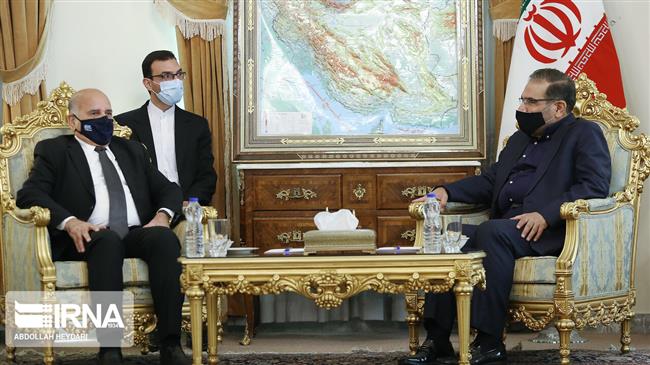



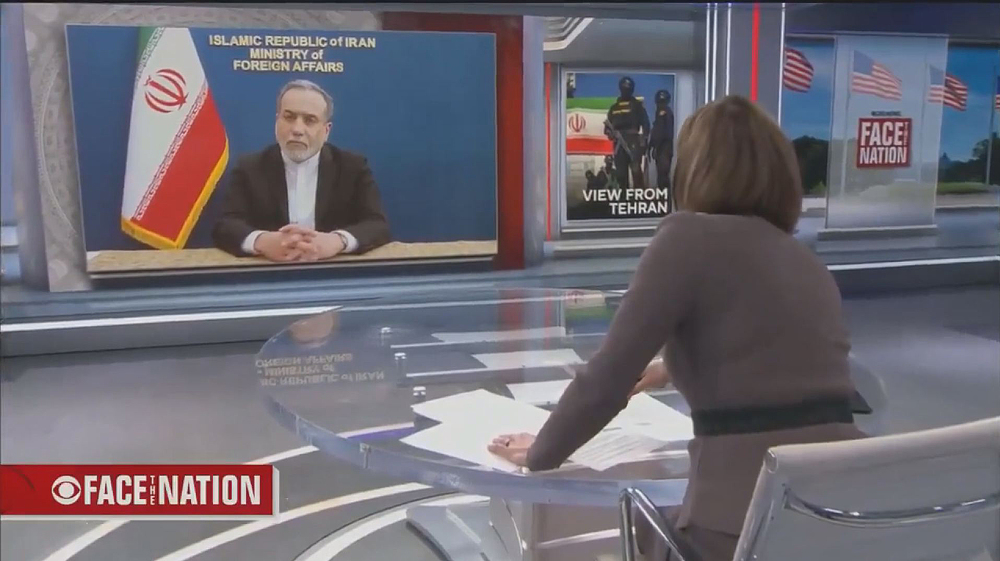
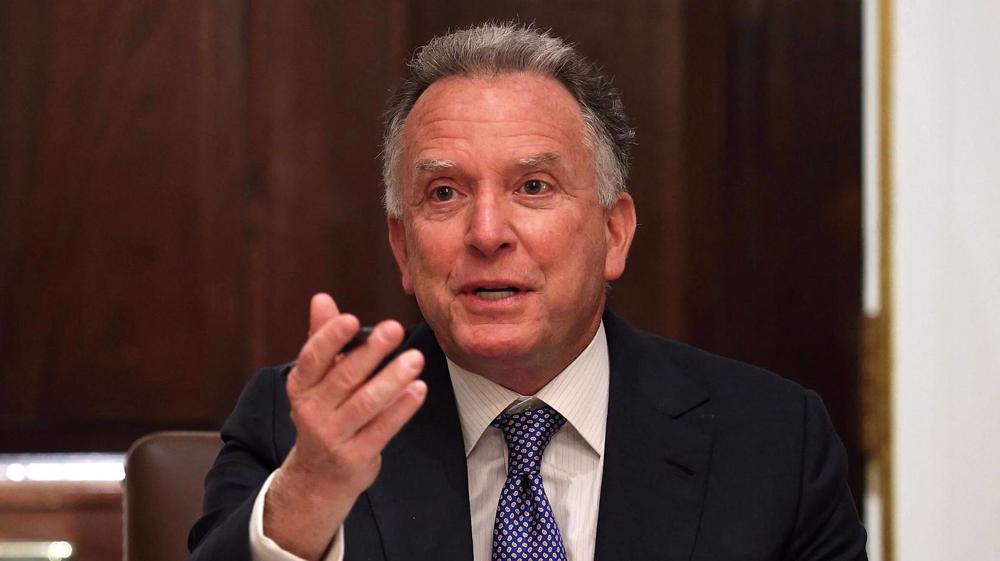
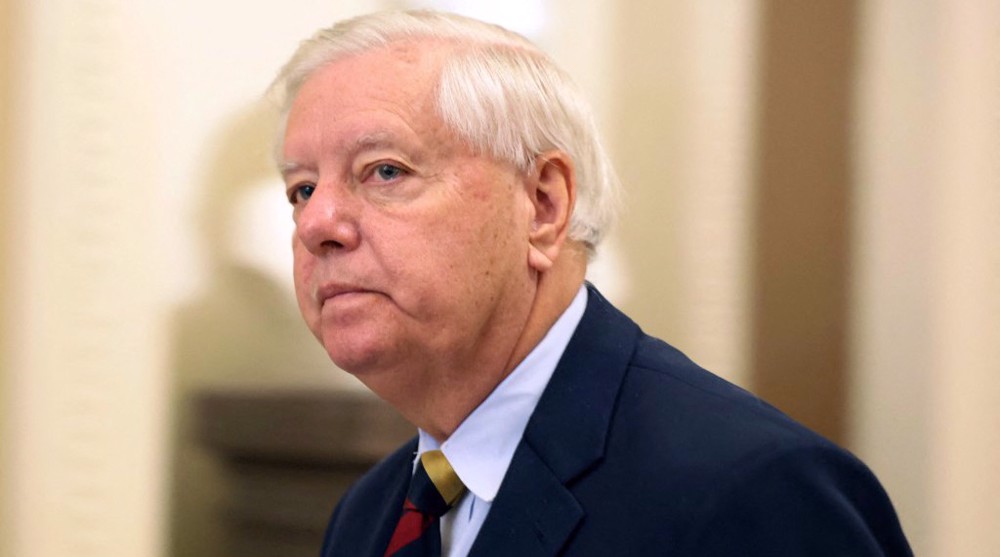



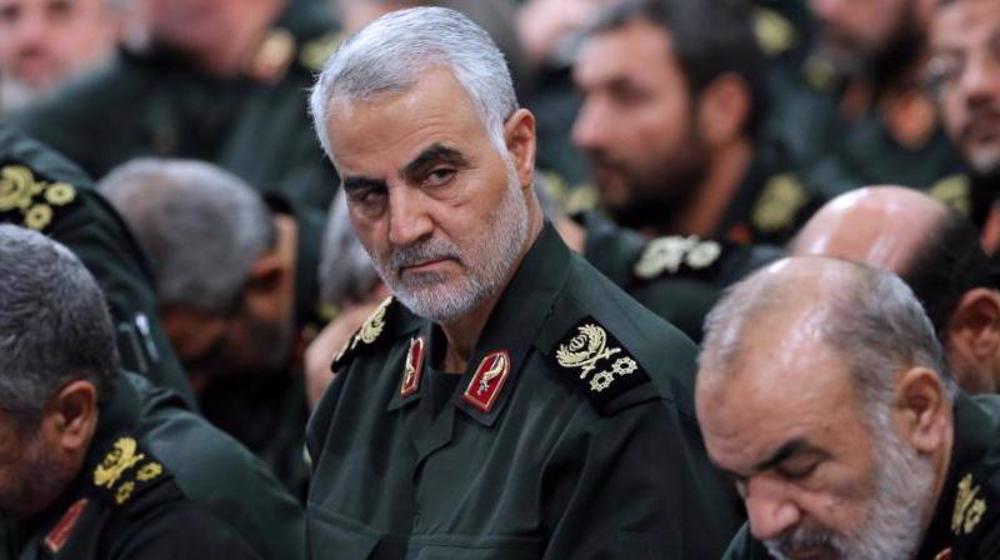
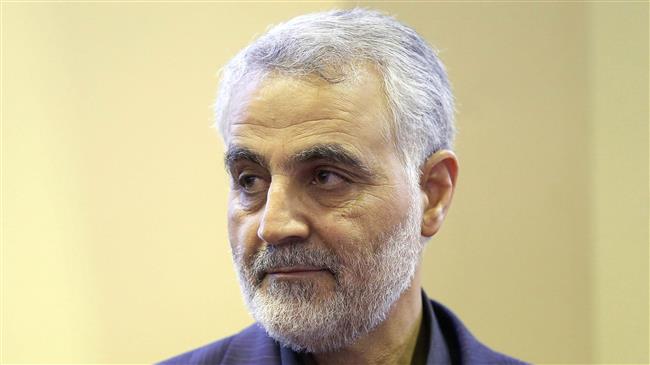

 This makes it easy to access the Press TV website
This makes it easy to access the Press TV website